Some Assorted Beings From A Project That Never Was, Including An Early, Fiery Exploration Of The Metahuman




Some assorted beings from a project that never was, including an early, fiery exploration of the metahuman form...
More Posts from Thestarsarenotyetnamed and Others
Humans are adorable.
Supporting evidence:
1. Humans say ‘ow’, even if they haven’t actually been hurt. It’s just a thing they say when they think they might have been hurt, but aren’t sure yet.
2. Humans collect shiny things and decorate their bodies and nests with them. The shinier the better, although each individual has a unique taste for style and colouring
3. Humans are not an aquatic or even amphibious species, but they flock to bodies of water simply to play in it. They can’t even hold their breath all that long; they just love to splash!
4. When night falls and the sky goes dark, humans become drowsy and begin to cocoon themselves in soft, fluffy bedding.
5. Some humans spend time in each other’s nests! Just for fun! It’s not their nest; they’re just visiting each other.
6. Some humans use pigments and dyes to make their bodies flashy and colourful! They even attach shiny dangly bits to their cartalidgous membranes!
7. Humans are very clever, and sometimes adopt creatures from other species into their family units. They don’t seem to notice the obvious differences, and often raise them alongside their own young!
8. If a human sees another creature in distress, they can commonly be observed trying to help! Even at their own risk, most humans are deeply compassionate creatures!
9. If a human hears a particularity catchy sound or tune, it will often mimic it, even to the point of annoying themselves!
10. Sneezes are entirely involuntary, and completely adorable. Especially when the human in question becomes frustrated
11. Humans love treats!!! Some more than others. Many humans will save these treats specifically for a later date when they are in need of comfort or reassurance. IE, pickles, pop tarts, Popsicles, etc
12. They’re learning to travel in space!!! They can’t get very far, but they’re trying!!! So far, they’ve made it to the end of their yard, and have found rocks
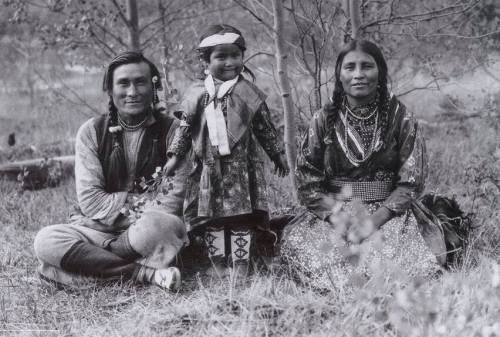
A very beautiful image of these smiley blackfoot. It seemed everything was alright…
Photograph by Mary T. S. Schaffer in 1907.
Disabled people aren't being class traitors when they report on their civil rights and humanity being violated
“Dogs don’t know what they look like. Dogs don’t even know what size they are. No doubt it’s our fault, for breeding them into such weird shapes and sizes. My brother’s dachshund, standing tall at eight inches, would attack a Great Dane in the full conviction that she could tear it apart. When a little dog is assaulting its ankles the big dog often stands there looking confused — “Should I eat it? Will it eat me? I am bigger than it, aren’t I?” But then the Great Dane will come and try to sit in your lap and mash you flat, under the impression that it is a Peke-a-poo… Cats know exactly where they begin and end. When they walk slowly out the door that you are holding open for them, and pause, leaving their tail just an inch or two inside the door, they know it. They know you have to keep holding the door open. That is why their tail is there. It is a cat’s way of maintaining a relationship. Housecats know that they are small, and that it matters. When a cat meets a threatening dog and can’t make either a horizontal or a vertical escape, it’ll suddenly triple its size, inflating itself into a sort of weird fur blowfish, and it may work, because the dog gets confused again — “I thought that was a cat. Aren’t I bigger than cats? Will it eat me?” … A lot of us humans are like dogs: we really don’t know what size we are, how we’re shaped, what we look like. The most extreme example of this ignorance must be the people who design the seats on airplanes. At the other extreme, the people who have the most accurate, vivid sense of their own appearance may be dancers. What dancers look like is, after all, what they do.”
— Ursula Le Guin, in The Wave in the Mind (via fortooate)
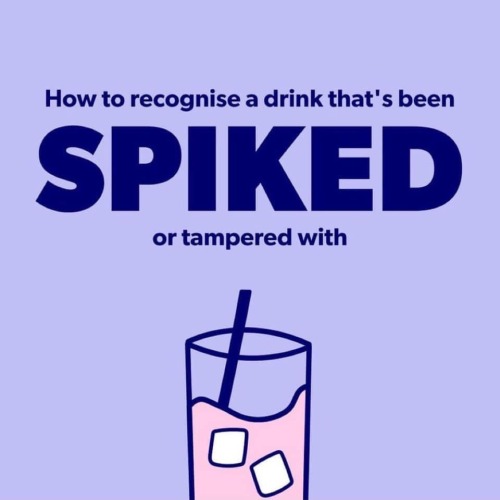
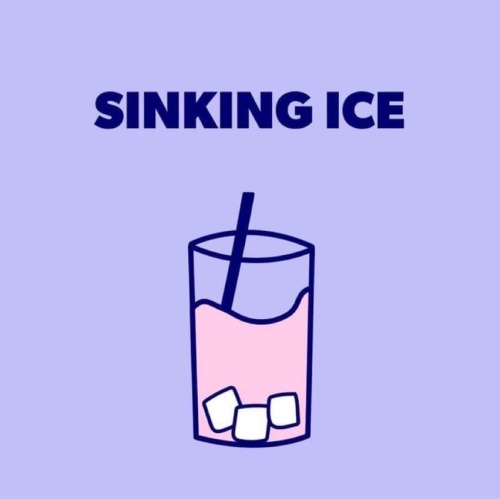
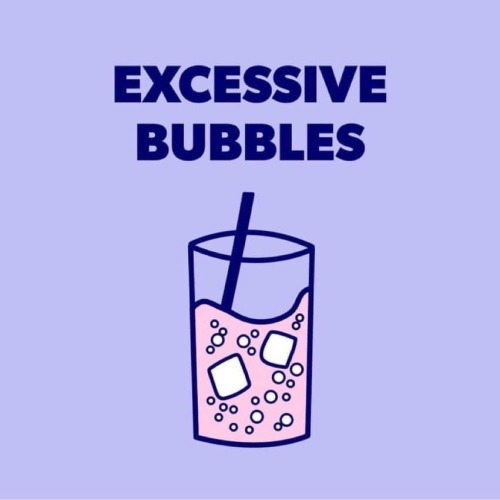
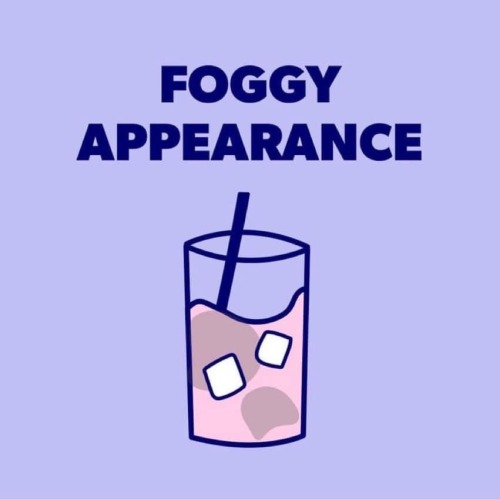
This could save lives so I thought I’d share!
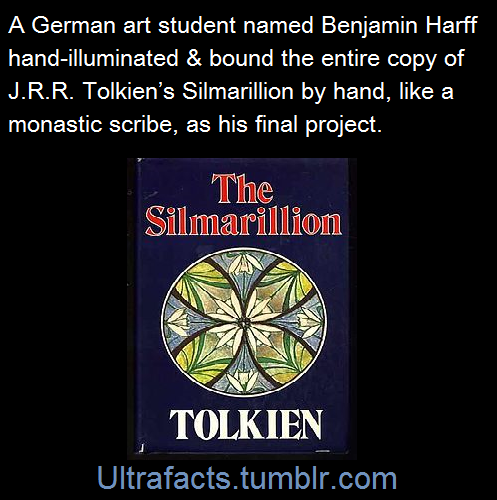

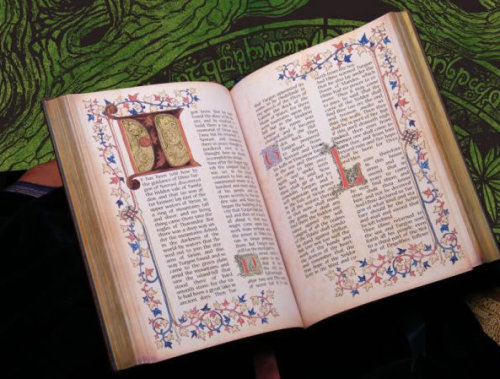

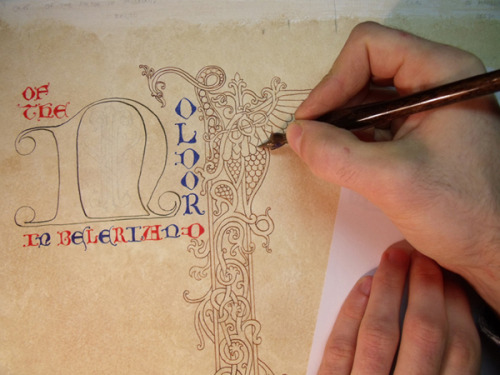
This German art student, Benjamin Harff, decided, for his exam at the Academy of Arts, to do something only slightly ambitious — to hand-illuminate and bind a copy of J.R.R. Tolkien’s Silmarillion. It took him six months of work. He hand-illuminated the text which had been printed on his home Canon inkjet printer. He worked with a binder to assemble the resulting book.
More pictures HERE
(Fact Source)
okay people who have been fighting to unwhitewash the clones, now is your time to help māori!!




What’s happening
- 182.41 hectares of our ancestral land in Wairarapa has come up for sale.
- This whenua backs onto our maunga Tararua, our awa, Waiohine and is near our whānau urupā, Te Uru o Tāneroa.
- The tender price is between $1.2-1.5 million.
- Our whānau are trying to raise money to meet the tender price.
- Our iwi has not settled, so we have no collective financial base.
- Our whānau want to buy back our whenua and establish papakāinga and sustainable business to bring our people home to Wairarapa.
If the tender is unsuccessful they will keep all donations for the next bit of land that comes up

(information has been copied from @/amscraig on twitter, who is a member of the iwi attempting to reclaim their land)
it is so disappointing that this is the only option to reclaim illegally stolen land for the iwi, but the government wont work towards settlement with many iwi so we have no other choice
if you have any money avaliable to donate please do, anything would be appreciated!
Discworld is an interesting beast in the age of ACAB. Like, the city watch books are a story about police and the way in which a good police force can help and protect people. Which would make it copoganda. And I'm not going to say that the City Watch books are completely free of copoganda, but they also do something interesting that fairly few stories about heroic police officers do, and I think it has a lot to do with Samuel Vimes. A lot of copoganda stories like, say, Brooklyn 99, are perfectly capable of portraying cops as cruel, bigoted, and greedy, but our central cast of characters are portrayed as good people who want to help their communities. The result is that the bad cops are portrayed as an aberration, while most cops can be assumed to be good people doing a tough job because they want to help protect people from the nebulous evil forces of "Crime". The police are considered to be naturally heroic. Pratchett does something very interesting, which is provide us with Vimes' perspective, and present us with an Unnaturally heroic police force. In Ahnk-Morpork, the natural state of the watch is a gang with extra paperwork. It's the place for people who, at best, just want a steady paycheck and at worst want an excuse to hit people with a truncheon. Rather than be an army defending people from the forces of Crime, the Watch is described as a sort of sleight-of-hand, big burly watchmen in shiny uniforms don't stand around in-case a Crime happens in their vicinity, they stand around to remind people that The Law exists and has teeth. The Watchmen are people, when danger rears it's head, their instinct is to hide and get out of the way. When faced with authority, their instinct is to bow to it out of fear of what it might do to them if they don't. Carrot is a genuine Hero, but his natural heroism is presented as an aberration. Normal Cops don't act like Carrot does. The fact that the Watch ends up acting like a Heroic Police Force is largely due to the leadership of Sam Vimes, but Vimes himself is a microcosm of the Watch. The base state of Sam Vimes would be an alchoholic bully of an officer, one who beats people until they confess to anything because that makes his job easier. Vimes The Hero is a homunculous, an artificial being created by Sam Vimes fighting back all those instincts and FORCING himself to behave as his conscience dictates. Vimes doesn't take bribes or let his officers do the same because, damnit, that sort of thing shouldn't happen, even if doing so would make things a lot easier. Vimes doesn't run towards sounds of screaming because he WANTS to, he forces himself to do so because somebody needs to. It's best summed up in Thud “Quis custodiet ipsos custodes? Your Grace.” “I know that one,” said Vimes. “Who watches the watchmen? Me, Mr. Pessimal.” “Ah, but who watches you, Your Grace?” said the inspector with a brief little smile. “I do that, too. All the time,” said Vimes. “Believe me.”
In the hands of another writer, or another series, this exchange would be weirdly dismissive. To whom should the police be accountable to? Themselves, shut up and trust us. But from Vimes, it's a different story. Vimes DOES constantly watch himself, and he doesn't trust that bastard, he's known him his entire life. The Heroic Police are not a natural state, they're an ideal, and ahnk-morpork only gets anywhere close. Vimes is constantly struggling against his own instincts to take shortcuts, to let things slide, but he forces himself to live up to that ideal and the Watch follows his example. Discworld doesn't propose any solutions to the problems with policing in the real world. We don't have a Sam Vimes to run the NYPD and force them to behave. We don't have a Carrot Ironfounderson. But it's at least a story about detectives and police that I can read without feeling like I'm being sold propaganda about the Thin Blue Line.
emperor kuzco was clearly gay
Pointless LOTR headcanon of the day: Frodo & Merry both take after their mothers, meaning Frodo looks more like a Brandybuck than a Baggins and Merry looks more like a Took. This is a constant source of petty contention.
-
 twistpopfizzz liked this · 1 month ago
twistpopfizzz liked this · 1 month ago -
 chiefbouquetphantomstuff liked this · 1 month ago
chiefbouquetphantomstuff liked this · 1 month ago -
 coloneljurten liked this · 1 month ago
coloneljurten liked this · 1 month ago -
 sugarbones2004 liked this · 1 month ago
sugarbones2004 liked this · 1 month ago -
 callmeoddity reblogged this · 1 month ago
callmeoddity reblogged this · 1 month ago -
 pricklytriangle liked this · 1 month ago
pricklytriangle liked this · 1 month ago -
 marklinuniverse liked this · 1 month ago
marklinuniverse liked this · 1 month ago -
 thestygianchords liked this · 1 month ago
thestygianchords liked this · 1 month ago -
 birgfan liked this · 1 month ago
birgfan liked this · 1 month ago -
 littlestarrys liked this · 1 month ago
littlestarrys liked this · 1 month ago -
 o-thello liked this · 1 month ago
o-thello liked this · 1 month ago -
 theadventuresofmichaelpawlak reblogged this · 1 month ago
theadventuresofmichaelpawlak reblogged this · 1 month ago -
 butchbunkum liked this · 1 month ago
butchbunkum liked this · 1 month ago -
 cuvier-orcinus liked this · 1 month ago
cuvier-orcinus liked this · 1 month ago -
 thatguywhodoesstuff liked this · 1 month ago
thatguywhodoesstuff liked this · 1 month ago -
 darthcatboy reblogged this · 1 month ago
darthcatboy reblogged this · 1 month ago -
 kyuss6161 reblogged this · 1 month ago
kyuss6161 reblogged this · 1 month ago -
 dudepersongoy liked this · 1 month ago
dudepersongoy liked this · 1 month ago -
 doc76502 reblogged this · 1 month ago
doc76502 reblogged this · 1 month ago -
 sweetgardener liked this · 1 month ago
sweetgardener liked this · 1 month ago -
 runjumptaco liked this · 1 month ago
runjumptaco liked this · 1 month ago -
 adigitaldrifter liked this · 1 month ago
adigitaldrifter liked this · 1 month ago -
 getoo liked this · 1 month ago
getoo liked this · 1 month ago -
 getoo reblogged this · 1 month ago
getoo reblogged this · 1 month ago -
 crustybreadrolls liked this · 1 month ago
crustybreadrolls liked this · 1 month ago -
 bonelessnerd reblogged this · 1 month ago
bonelessnerd reblogged this · 1 month ago -
 yesherewegoagainstuff liked this · 1 month ago
yesherewegoagainstuff liked this · 1 month ago -
 goodrichthyseskdalensis liked this · 1 month ago
goodrichthyseskdalensis liked this · 1 month ago -
 halfd3af liked this · 1 month ago
halfd3af liked this · 1 month ago -
 ogboggle liked this · 1 month ago
ogboggle liked this · 1 month ago -
 stillstandingsurvivor reblogged this · 1 month ago
stillstandingsurvivor reblogged this · 1 month ago -
 stillstandingsurvivor liked this · 1 month ago
stillstandingsurvivor liked this · 1 month ago -
 lilyamie liked this · 1 month ago
lilyamie liked this · 1 month ago -
 tokushudesu reblogged this · 1 month ago
tokushudesu reblogged this · 1 month ago -
 tokushudesu liked this · 1 month ago
tokushudesu liked this · 1 month ago -
 oaktreebutch reblogged this · 1 month ago
oaktreebutch reblogged this · 1 month ago -
 bestquadrada reblogged this · 1 month ago
bestquadrada reblogged this · 1 month ago -
 dracheiv liked this · 1 month ago
dracheiv liked this · 1 month ago -
 tomorrows-nobody reblogged this · 1 month ago
tomorrows-nobody reblogged this · 1 month ago -
 tomorrows-nobody liked this · 1 month ago
tomorrows-nobody liked this · 1 month ago -
 rhaelanaitoh liked this · 1 month ago
rhaelanaitoh liked this · 1 month ago -
 erebus-ancient-god-of-shadow liked this · 1 month ago
erebus-ancient-god-of-shadow liked this · 1 month ago -
 lokifreign liked this · 1 month ago
lokifreign liked this · 1 month ago -
 o-blivia reblogged this · 1 month ago
o-blivia reblogged this · 1 month ago -
 theannihilent0 liked this · 1 month ago
theannihilent0 liked this · 1 month ago -
 burntcrayon reblogged this · 1 month ago
burntcrayon reblogged this · 1 month ago -
 estavs liked this · 1 month ago
estavs liked this · 1 month ago -
 seasonalskies reblogged this · 1 month ago
seasonalskies reblogged this · 1 month ago

301 posts